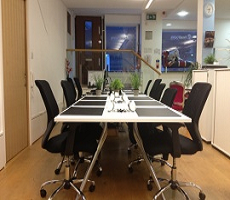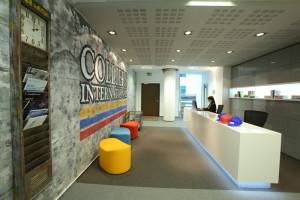To provide the best experiences, we use technologies like cookies to store and/or access device information. Consenting to these technologies will allow us to process data such as browsing behaviour or unique IDs on this site. Not consenting or withdrawing consent, may adversely affect certain features and functions.
The technical storage or access is strictly necessary for the legitimate purpose of enabling the use of a specific service explicitly requested by the subscriber or user, or for the sole purpose of carrying out the transmission of a communication over an electronic communications network.
The technical storage or access is necessary for the legitimate purpose of storing preferences that are not requested by the subscriber or user.
The technical storage or access that is used exclusively for statistical purposes.
The technical storage or access that is used exclusively for anonymous statistical purposes. Without a subpoena, voluntary compliance on the part of your Internet Service Provider, or additional records from a third party, information stored or retrieved for this purpose alone cannot usually be used to identify you.
The technical storage or access is required to create user profiles to send advertising, or to track the user on a website or across several websites for similar marketing purposes.
 Earlier this year, the BBC World Service became the latest media outlet to discuss the growing backlash against the recent hegemony of open plan offices looking at its history, rationale, implications and our current love-hate relationship with the idea, including contributions from Franklin Becker, Frank Duffy (pictured), Julian Treasure and Alexi Marmot and drawing on several case studies. The programme is available to listen to here.
Earlier this year, the BBC World Service became the latest media outlet to discuss the growing backlash against the recent hegemony of open plan offices looking at its history, rationale, implications and our current love-hate relationship with the idea, including contributions from Franklin Becker, Frank Duffy (pictured), Julian Treasure and Alexi Marmot and drawing on several case studies. The programme is available to listen to here.






















May 24, 2013
Artists sing about office furniture. Part 3 – Arctic Monkeys
by Mark Eltringham • Comment, Furniture
[embedplusvideo height=”230″ width=”210″ standard=”https://www.youtube.com/v/5zqTI6S-pMI?fs=1″ vars=”ytid=5zqTI6S-pMI&width=210&height=230&start=&stop=&rs=w&hd=0&autoplay=0&react=1&chapters=¬es=” id=”ep1560″ /]
Something for the weekend. Or at least something for those of you who might be moving office this weekend. The Arctic Monkeys sing not only about office furniture, but create the great rock anthem for the facilities manager – not to mention all those who on Monday will arrive into their offices following this weekend’s refurbishment or office relocation to find things are not quite as they once were or they wanted them to be. This is a topic we will return to in detail in Monday following this week’s Clerkenwell Design Week, which amongst other things saw the inaugural event of the BIFM Workplace Special Interest Group, of which great things are expected.
(more…)